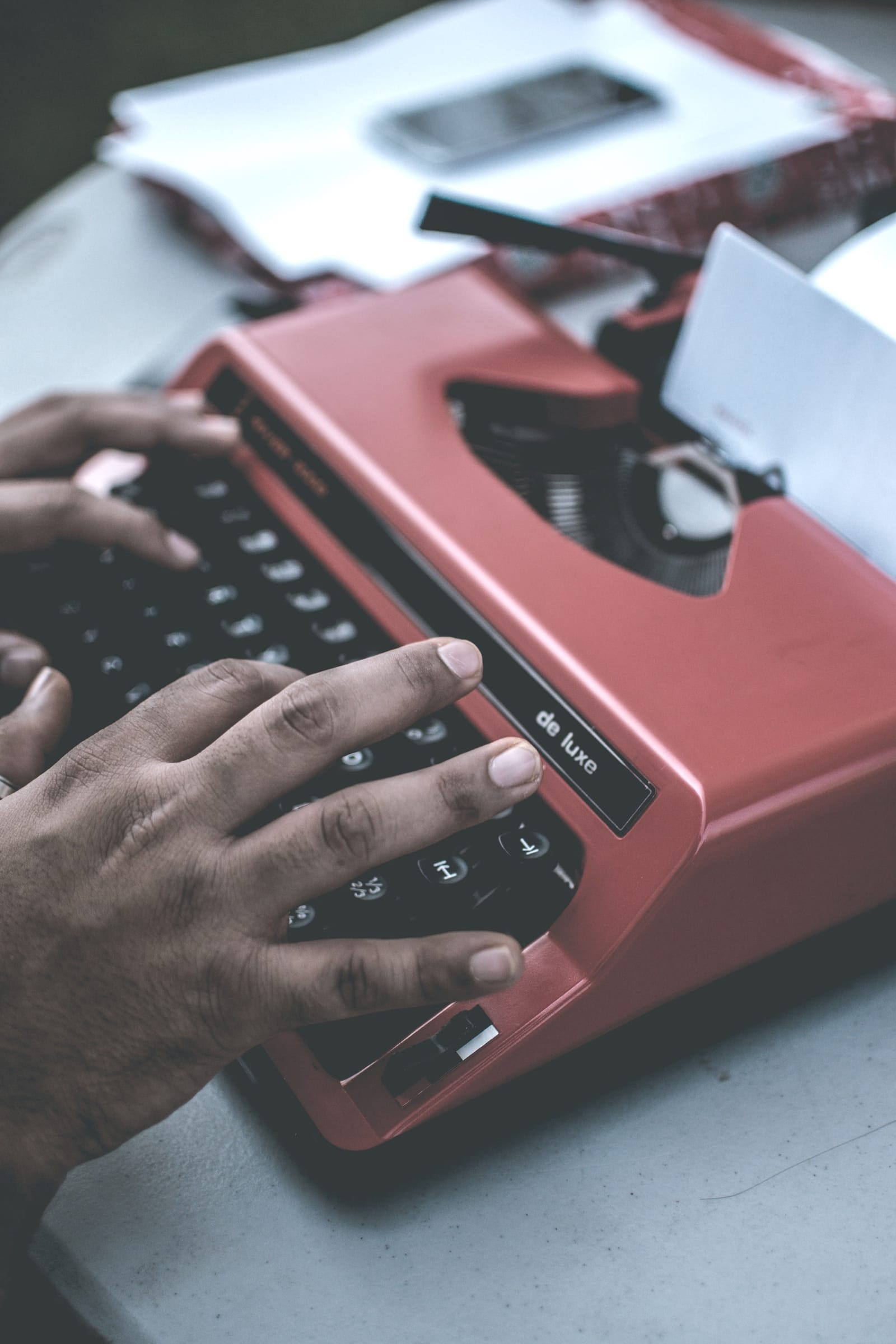Fingers are pushed toward the keyboard by an indistinct force, without perceptible meaning or reason. For now, they’re just fingers exerting force on keys. What moves them is clear but, at the same time, indecipherable. An obscure clarity. Does such a thing exist? Perhaps the fingers touch the keys not because they’re being guided by purpose but because they intend to show the reasons that lead them to move, without the company of eyes. Those are completely attentive to what appears on screen, as if waiting for revelation of what’s happening, beyond the obvious mechanical and sonic apparatus of someone typing.
The fingers continue busy, in combinations that make these words appear on screen. And where are these words? If they didn’t exist before being projected here, if there was no prior consciousness of them, if they didn’t inhabit memory, if their end isn’t suspected, where are they, if not at the fingertips? Reading these words, the eyes turn from the screen and the fingers, in synchrony, move away from the keyboard so both can meet.
It’s a moment of mutual recognition. The eyes ask the fingers: “Was it you?” The fingers respond: “Was it us?” Neither assumes complete authorship. The words seem to have written themselves through them, not by them.
At this point, the reader might begin to doubt the veracity of these words. If they hadn’t doubted before, trust in the writer will certainly be challenged, now that he invites such an exercise. For the writer himself questions whether the words are his or whether they command him. How can the fingers have left the keyboard for an appointment with the eyes, and the words have continued appearing, coming from nothing and not knowing where they’re going?
The answer is simple: the question is wrong. One cannot infer the truth of these words because the time of writing and the time of reading never coincide. Moreover, truth cannot be evaluated because the starting point is unknown and the destination is neither anticipated nor intuited. Such discoveries will be the reader’s responsibility, not the writer’s. For even he, when revisiting these same words at a time different from writing, will no longer be the writer, will transform into reader. To discover and provide discoveries, shouldn’t these be the ultimate purposes of everything written? At least partly, Nietzsche thought so when he said “everything I write, I write for myself.”
Until now, while writing, nothing reveals itself beyond these words. Patience, waiting, unknowing make the pupils dilate searching for some light in this darkness.
“Another falsehood!” the astute reader will detect. Pupils cannot dilate as if in darkness, the writer had already shared he was before a screen that, by logical deduction, must be illuminated, forcing pupils to contract to prevent eyes from being hurt by light. But whoever doubted will not have contemplated the complexity of what we call language, will not have been capable of considering the richness of words. Not these words, presumption hasn’t reached that point, but any words. Language doesn’t serve only to describe what eyes see, it also serves to speak about what one cannot yet see, it equally serves to describe what is invisible to eyes.
Reading words isn’t just accessing what they might be describing. Reading words is also understanding where they come from and what they’re destined for. Reading words is reading people, what they say, what they don’t say, what they want to say and what they don’t dare release from their intimacy. In writing, one always shares more than intended, even if the intention is contrary or hidden.
Each word is a small betrayal of the writer to himself. It reveals thought rhythms, recurring obsessions, fears disguised as certainties. The attentive reader reads between the lines, in the spaces, in the pauses. Reads what was written and what was avoided. Reads the person behind the persona.
Early backer discount. There's a one-time 60% discount on your first payment during of The Useful Uselessness.Thats about 16€ the first year.
This is a reader supported publication. If you enjoy the content, please consider a paid subscription or a donation. Also, if you thought of someone while reading the content, don’t hesitate to share it with them.


